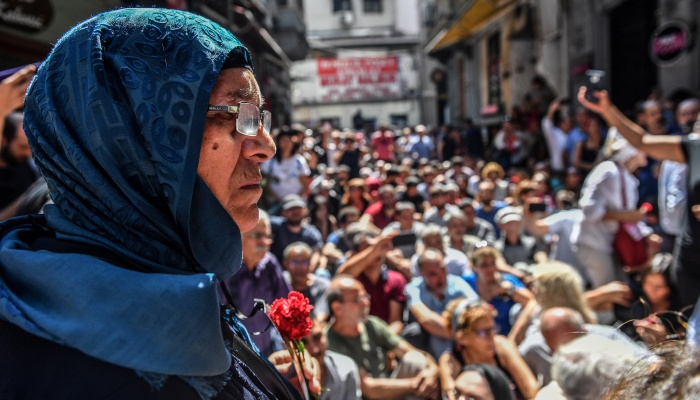Amnesty International and several human rights organizations have called on Turkish authorities to remove the ban on the weekly protest vigils of the Saturday Mothers, a group of activists seeking accountability for their loved ones who disappeared in police custody in the 1980s and 1990s, the Stockholm Center for Freedom reported.
The statement of the rights groups including the Civil Rights Defenders, the Civicus Global Alliance and EuroMed Rights comes as the group approaches its 1,000th weekly gathering on May 25 and is also involved in the trial of 20 of its members that began in February.
The defendants are accused of violating the Law on Meetings and Marches and are now facing penalties as stipulated by law as well as a potential ban on engaging in any political activity.
“We call for the immediate lifting of the ongoing restrictions imposed on the relatives of the victims of enforced disappearances and on other human rights defenders in Turkey, particularly of Saturday Mothers/People. We urge the authorities to respect, facilitate and protect, instead of limiting, the group’s right to gather in Galatasaray Square every Saturday to hold their peaceful protest,” the rights groups said in their statement.
The Saturday Mothers, who first gathered on May 27, 1995, in Galatasaray Square on İstanbul’s İstiklal Street and have continued to meet there on Saturdays for a silent vigil since then, has staged the longest-running protest Turkey has ever witnessed.
The vigils, which saw the participation of larger numbers of people on landmark dates such as the 500th and 600th weeks, had been held peacefully without any restrictions by the Justice and Development Party (AKP) government until the 700th week in 2018, when dozens of protestors were detained after police broke up the protest.
The trial of the 46 people who were detained during the 700th gathering and are facing charges of “participating in unlawful meetings and marches and refusing to disperse despite warnings and the use of force” is ongoing.
The Constitutional Court ruled in November 2022 and March 2023 that the protesters’ right to peaceful assembly had been violated and that these violations should not be repeated. The rulings have yet to be enforced.

